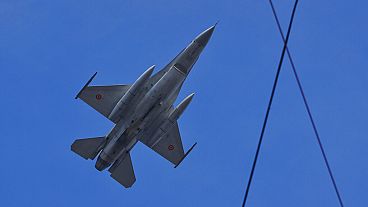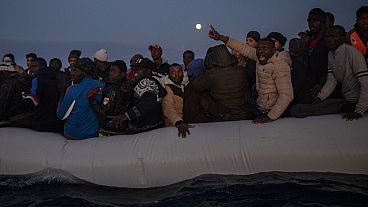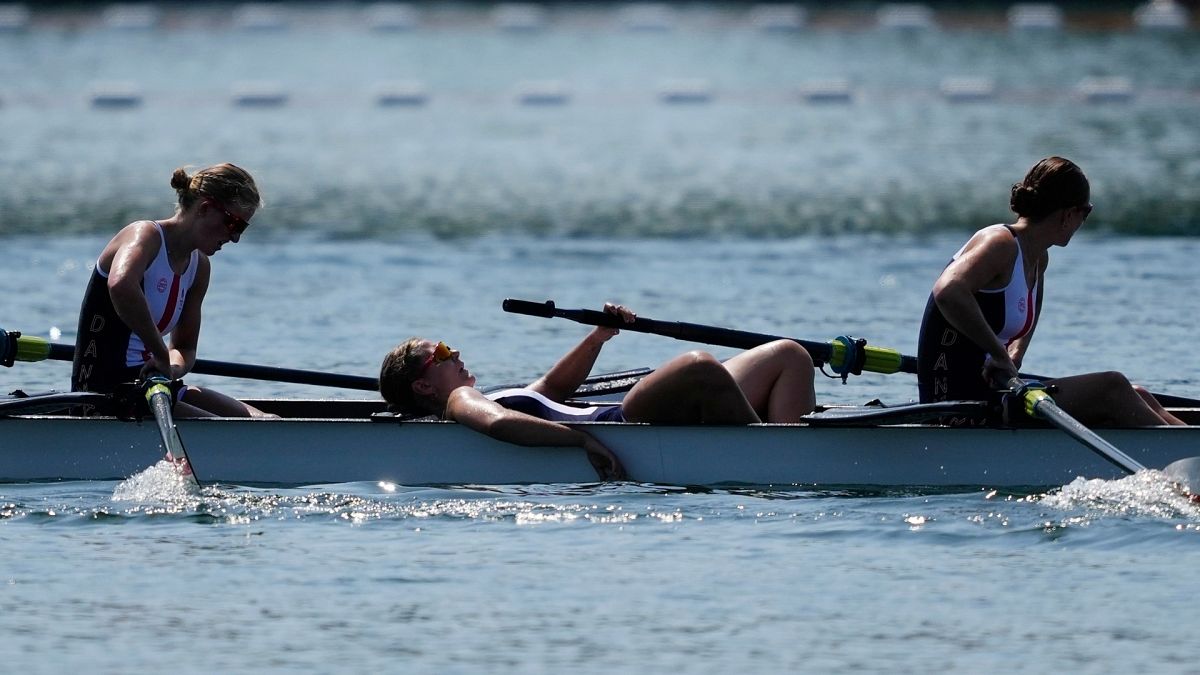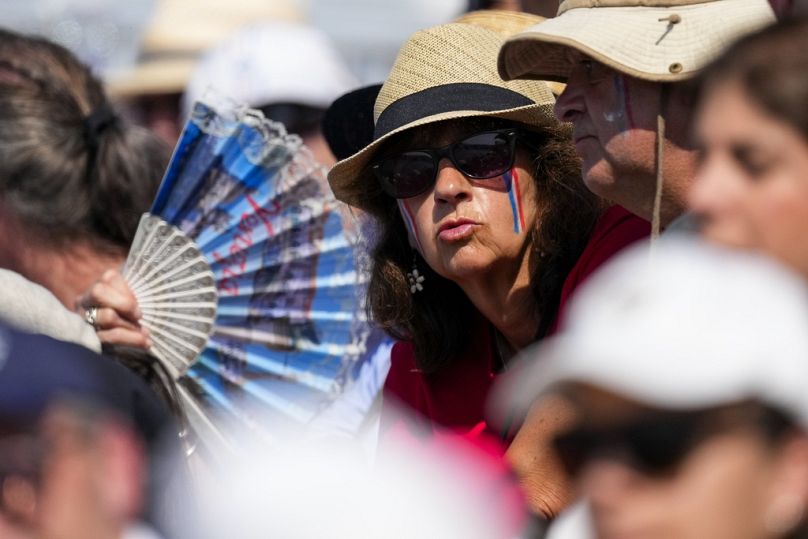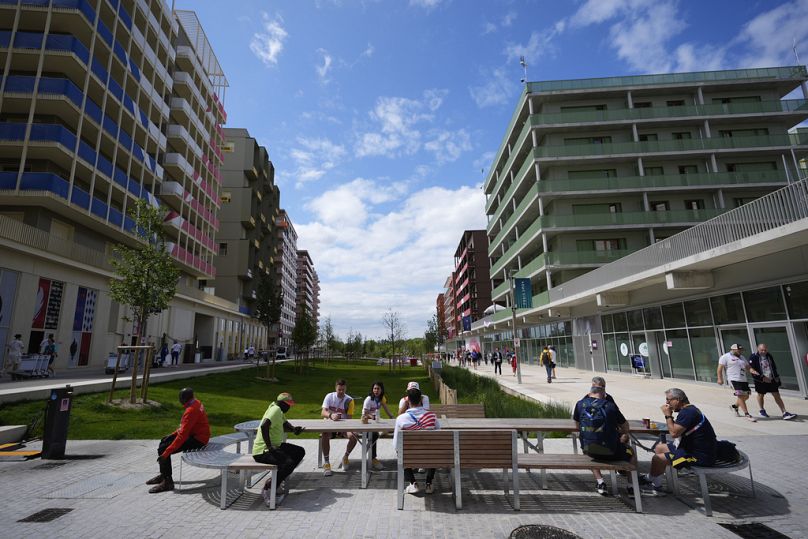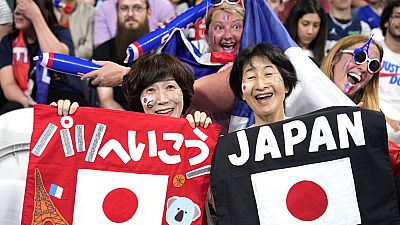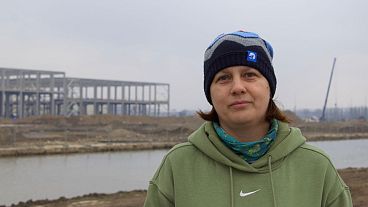There are fears Paris could be a repeat of the Tokyo Games when many athletes suffered in the heat.
Paris is expecting temperatures of 35C and high humidity this week as the city continues to host the 2024 Olympic Games.
France’s meteorological agency has issued a ‘yellow alert’ weather warning for heatwaves and storms on Tuesday after warm weather began on Sunday. It is the second of four levels with high temperatures expected to linger overnight into Wednesday.
Météo-France’s warning advises people to “be attentive” when playing sports or engaging in physical activity outdoors. With most of the Games taking place in or around the city, the high temperatures are likely to be a concern for athletes competing in outdoor events this week.
Over the next few days that includes beach volleyball at the Eiffel Tower, the women’s rugby sevens semi-final at the Stade de France and the BMX freestyle qualifiers at the Place de Concorde.
After numerous competitors suffered the consequences of the heat at the last Olympic Games in Tokyo, athletes urged organisers to be prepared for high temperatures.
What happened in Tokyo?
The Tokyo Olympic Games in 2021 were known as the “hottest in history” with temperatures climbing above 34C and humidity reaching nearly 70 per cent at times. It led to severe health risks for competing athletes.
The so-calledwet-bulb temperature takes into account both heat and humidity and a reading of 35C or over is considered fatal for humans if exposed for more than six hours. When humidity hits 100 per cent, sweat stops evaporating meaning the body cannot cool itself down. If a person is exposed to these conditions for an extended period, it can be lethal.
In Tokyo, marathon runners were seen vomiting and fainting as they crossed the finish line while Russian tennis player Daniil Medvedev posed the question of who would take responsibility if he died in the heat. Others had to be taken away from their events in wheelchairs.
According to a study from the British Medical Journal, around 1 in 100 Olympic athletes suffered from heat-related illnesses during the Games.
Paris is also facing extreme heat with the world recently recording its hottest ever day after months of unprecedented temperatures. Experts say we are now in “truly unchartered territory” as the climate continues to warm.
The city is particularly vulnerable to high temperatures and has the highest risk of heat-related death in Europe, a 2023 study found. Since Paris last hosted the Games in 1924, climate change has seen temperatures increase by around 3.1C at this time of year.
After 2023 saw one of the hottest summers on record in France, Olympic organisers are determined to avoid a repeat of what happened in Tokyo.
How have Olympic organisers prepared for the heat?
Météo-France is in constant contact with the organisers of the Games, providing real-time updates and warnings about the weather conditions. The weather agency alongside Santé Publique France has enhanced the usual heat and health warnings.
There are contingency plans in place for some sports and venues as well as specific limits where play can’t continue if temperature thresholds are reached. Events such as the triathlon and marathon start early in the morning to avoid the hottest part of the day. Organisers have assessed the risk for each sport and say they created the calendar of events with these specific concerns in mind.
Athletes have been preparing for the heat, too with some reproducing conditions like temperature and humidity during their training.
The heat won’t just be a problem for athletes, however. But free water fountains have been installed across Paris, including more than 400 at event venues, so spectators can keep their bottles full and avoid dehydration.
Shaded areas are also available and for outdoor events, organisers have made sure that waiting times in the sun are minimised. Some venues have even been planted to provide cool areas to shelter in.
Medical teams are on hand too at each venue to monitor, prevent and provide first aid to any spectators suffering from heatstroke.
Olympic organisers concede to air conditioning concerns
Teams expressed concerns about the Olympic Village after it was revealed the accommodation would not have air conditioning.
The Village was designed to use a geothermal system that cools with water taken from deep underground. This system keeps temperatures in the rooms at least 6C lower than what they are outside and is much more eco-friendly than air conditioning.
Following backlash from teams, organisers announced that teams would be able to get portable cooling units in their rooms.
The compromise meant that teams could order portable air-conditioning units at their own expense which would be installed in the rooms of their athletes for the duration of the Games. The Village has around 7,000 rooms in total and will host roughly 10,000 Olympians over the next two weeks.
In early July, the deputy director of the Olympic Village Augustin Tran Van Chau said during a media visit that around 2,500 air conditioning units had been ordered. The teams bringing their own air conditioning include Japan, which has installed advanced cooling, humidity control and purification systems, as well as the US, Great Britain, Australia, Denmark, Canada, Greece and Italy. It remains to be seen how these teams will rank on the medals tables.



